Architecture: New Mexico
Historic Santa Fe Plaza
The Santa Fe Plaza is a National Historic Landmark in downtown Santa Fe, New Mexico in the style of traditional
Spanish-American colonial cities. The plaza, or "city-square", was originally, and is still to this day, the center gathering
place in town - "the heart of Santa Fe". The landmark has since grown into a major attraction for those interested in Spanish,
Native American, and Mexican cultures, and includes music, design, jewelry, art and dance. It is home to annual events including
Fiestas de Santa Fe, the Spanish Market, the Santa Fe Bandstand, and the Santa Fe Indian
Market.
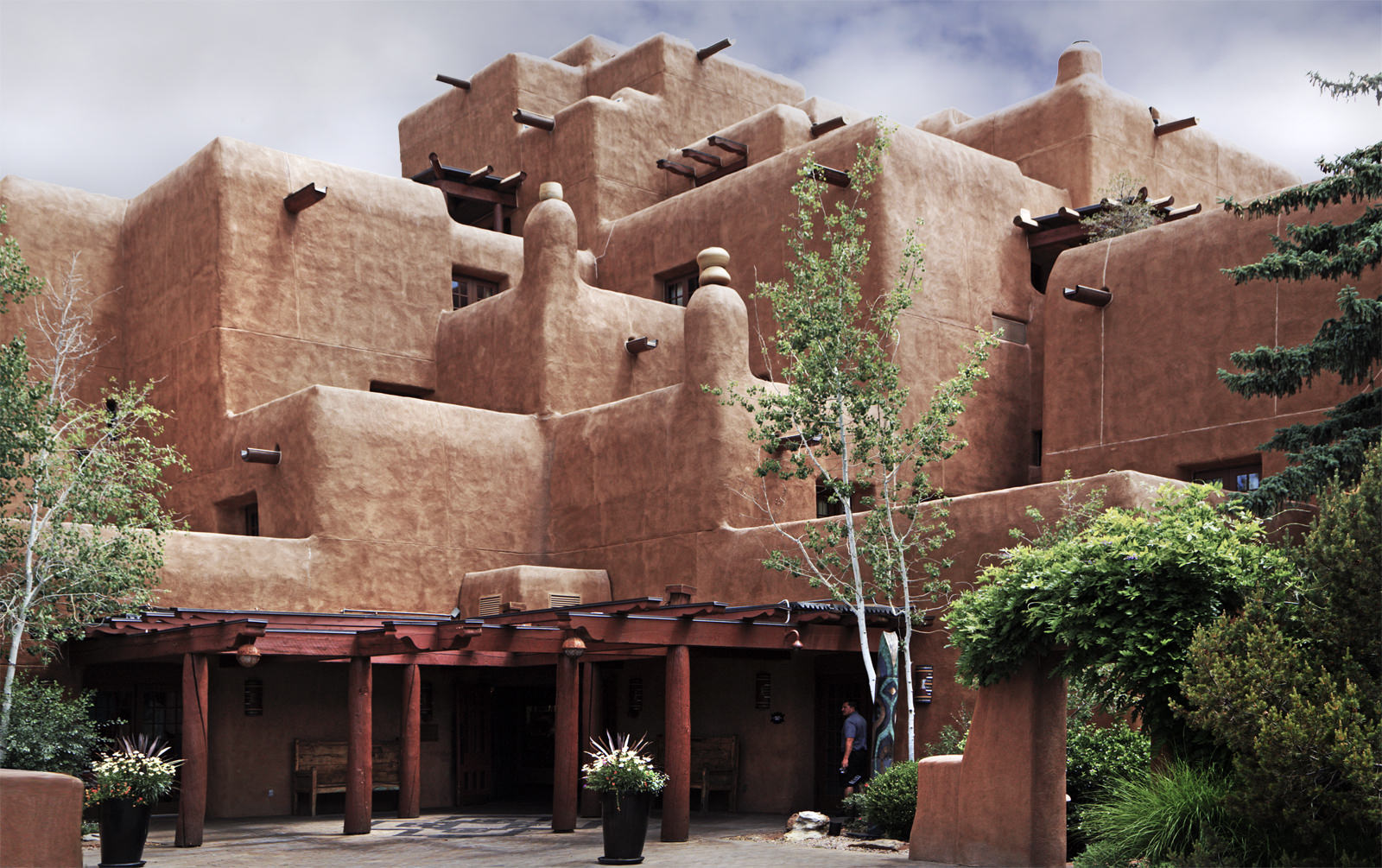
The Inn and Spa at Loretto
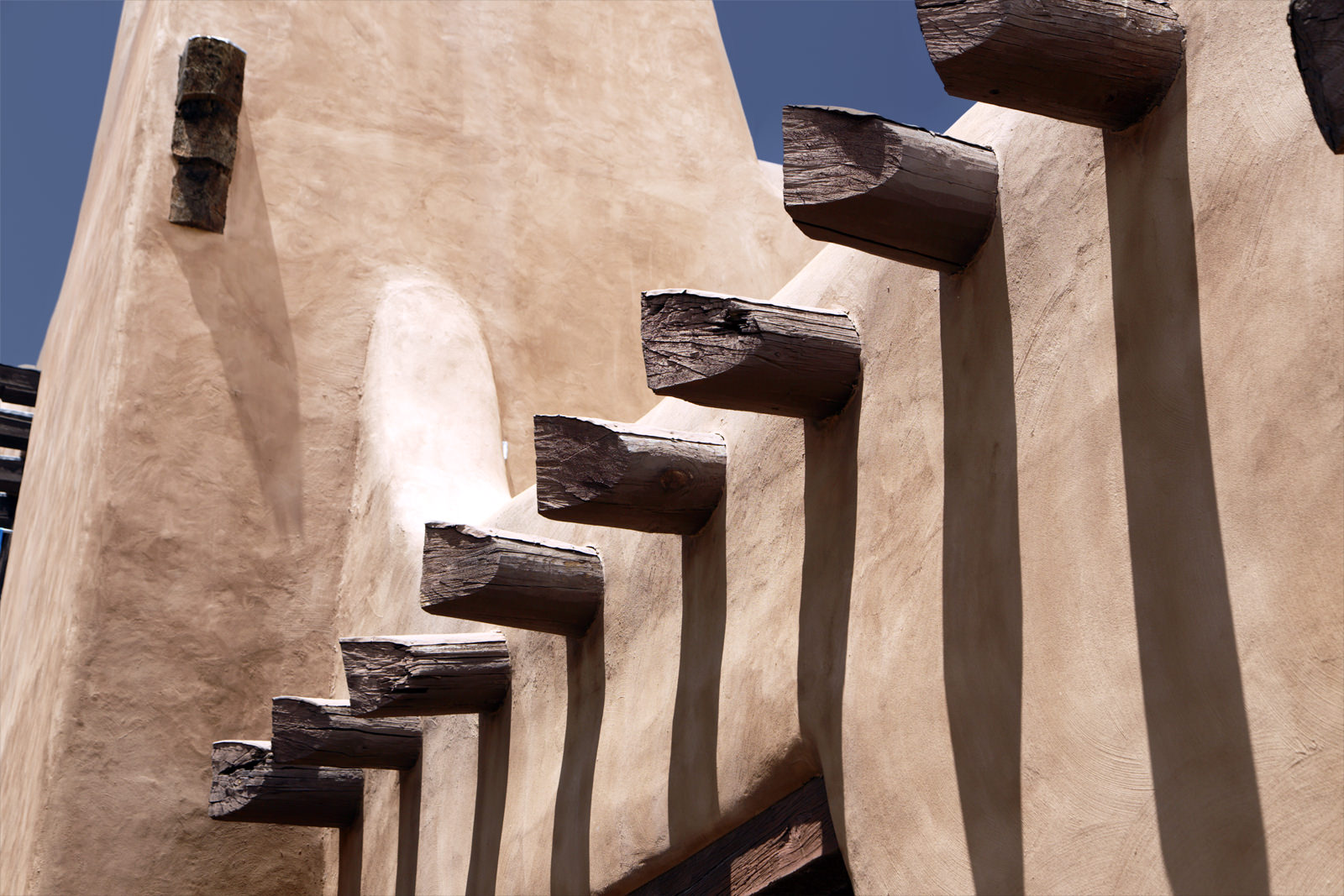
Pueblo Vigas: New Mexico Museum
Encompassed in the general Plaza area are historic monuments, restaurants, businesses and art galleries, including the
Palace of the Governors (the oldest public building in the U.S.), the New Mexico Museum of Art, Cathedral Basilica of Saint
Francis of Assisi, and the Loretto Chapel. In true pueblo fashion, the Plaza architecture is traditional
adobe.

Pueblo Style: New Mexico Museum

Plaza Garden Wall
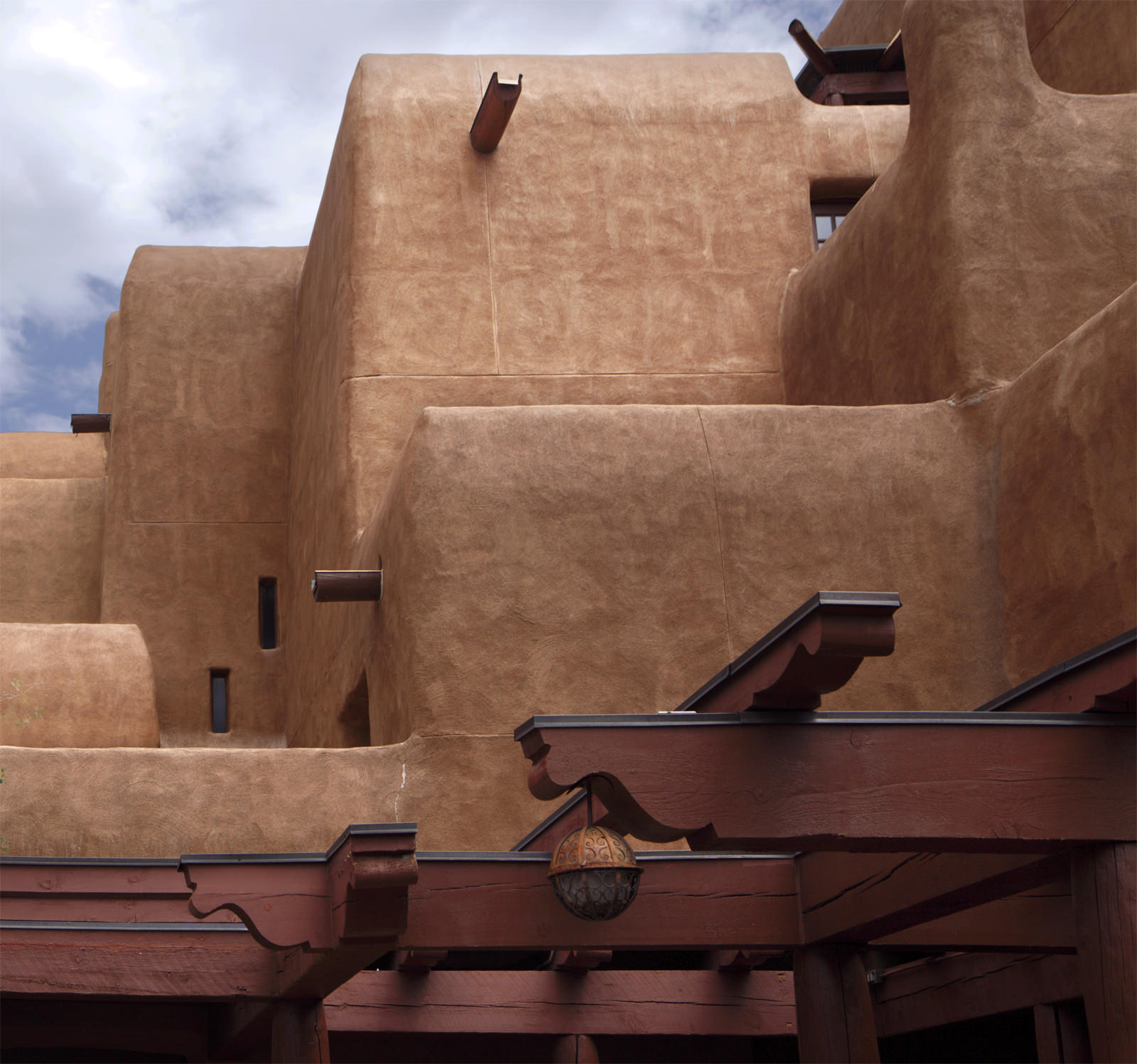
Pueblo Multilevel Structure
The Plaza is Santa Fe’s historic, cultural and geographic center. In the early days, it was found at the end of El Camino
Real (the Spanish Royal Road from Mexico City), the Santa Fe Trail, and the Old Pecos Trail. Today, the Plaza is surrounded
by restaurants, shops and museums and it serves as a gathering place for both locals and tourists. Many seasonal community
events are held at the Plaza, and it is then filled to capacity with people enjoying the magic that is 'The City Different'.

Simple Elegant Beauty
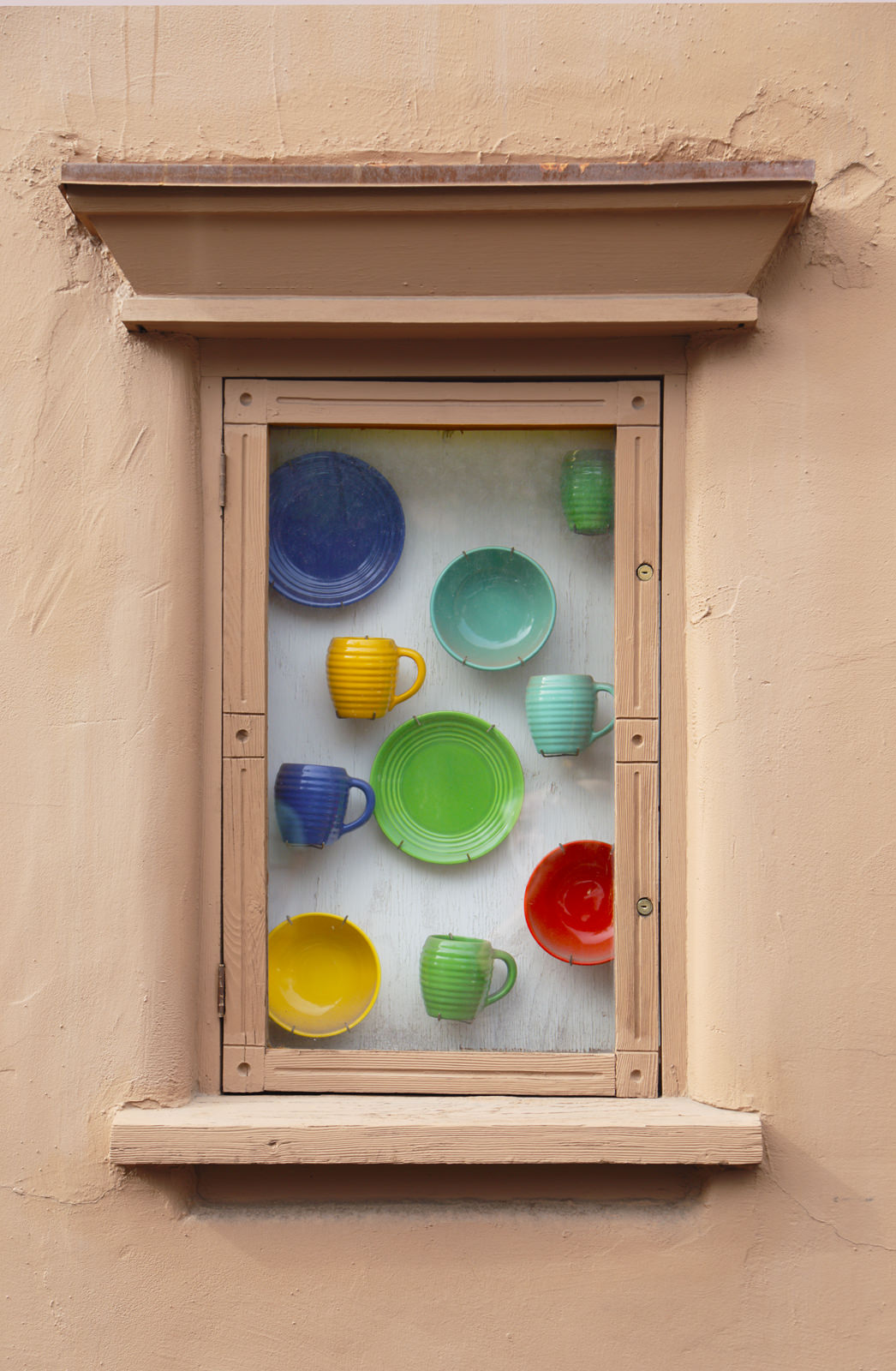
Display in Art Gallery Window
The Plaza dates back to the early 18th century when Santa Fe was settled by conquistadors. Until the mid-19th century,
the Plaza lacked landscaping, and ownership of the area transitioned between the Spaniards and the Mexicans throughout the
earlier years.

Plaza Stairway
Eventually the wall gave way to large houses built by high-ranking Spanish officers and officials. In 1822 the famed Santa
Fe Trail, a trade route from New Mexico to St. Louis, was opened with its terminus in the Plaza. Today the Plaza is ringed by
structures in the Pueblo, Spanish and Territorial styles that reflect its diverse
history.
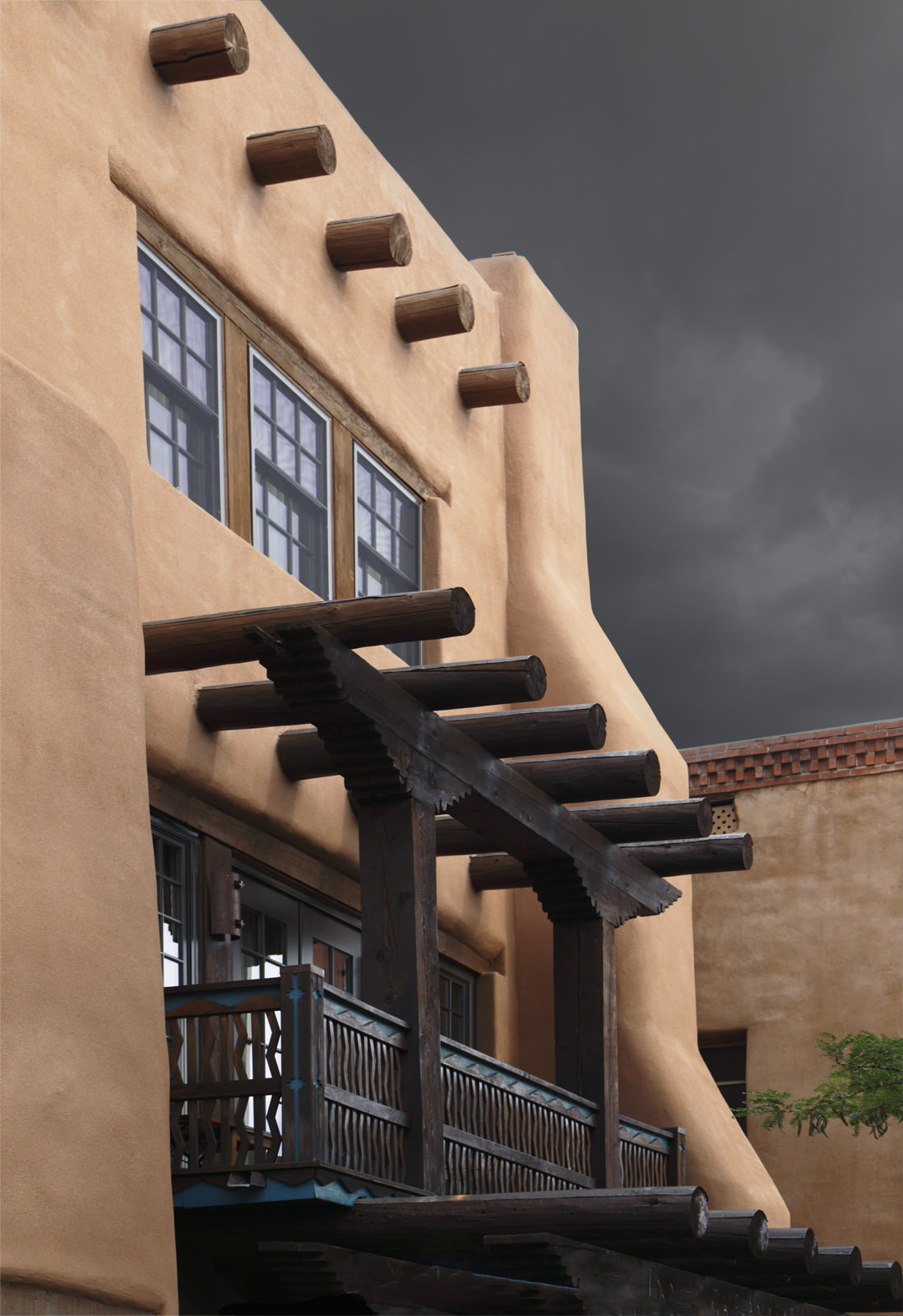
Plaza Restaurant
Santa Fe Plaza has been the commercial, social and political center of Santa Fe since c. 1610 when it was established by
Don Pedro de Peralta. The original Plaza was a presidio (fort) surrounded by a large defensive wall that enclosed residences,
barracks, a chapel, a prison and the Governor's palace.
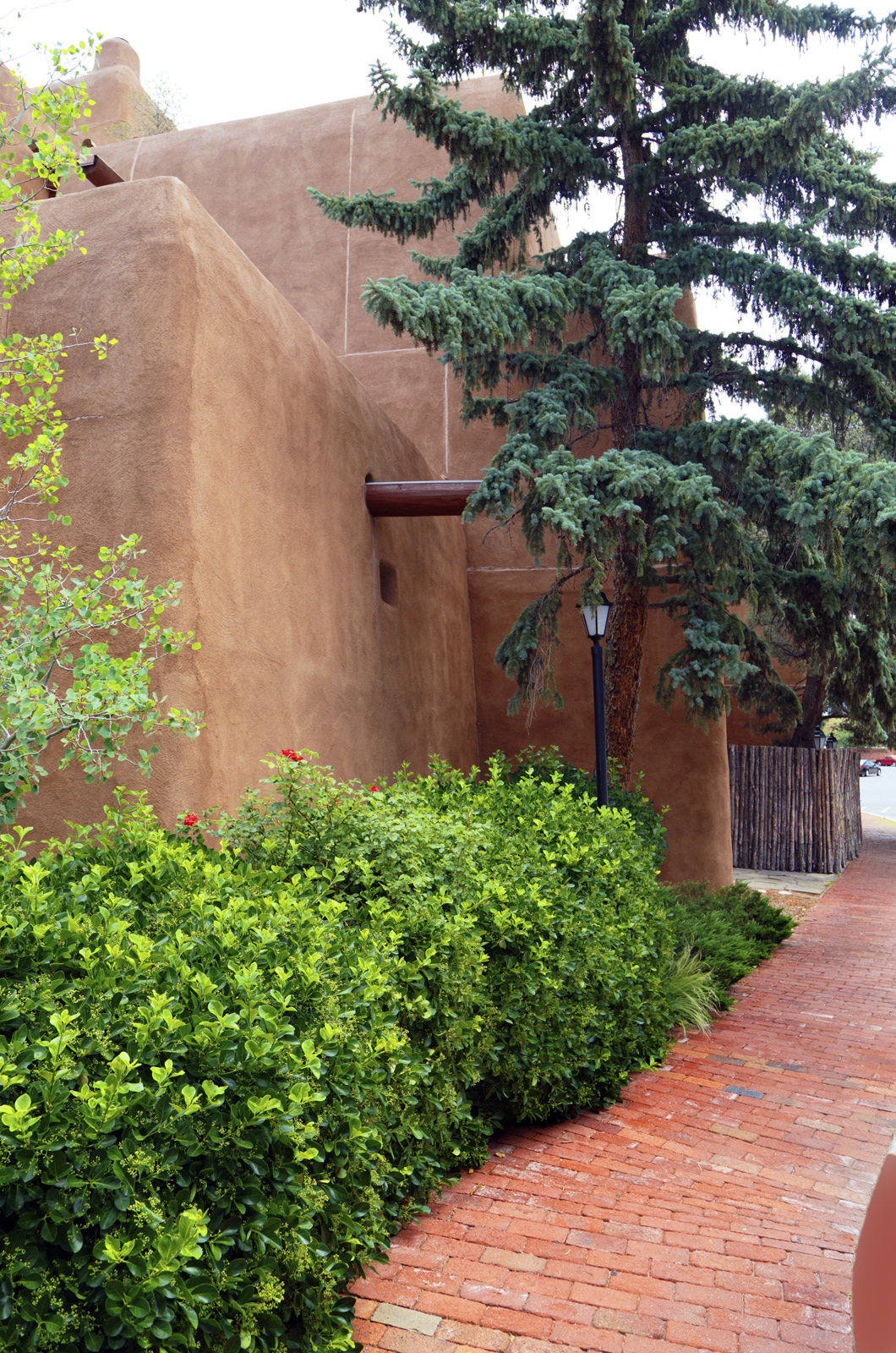
Santa Fe Museum
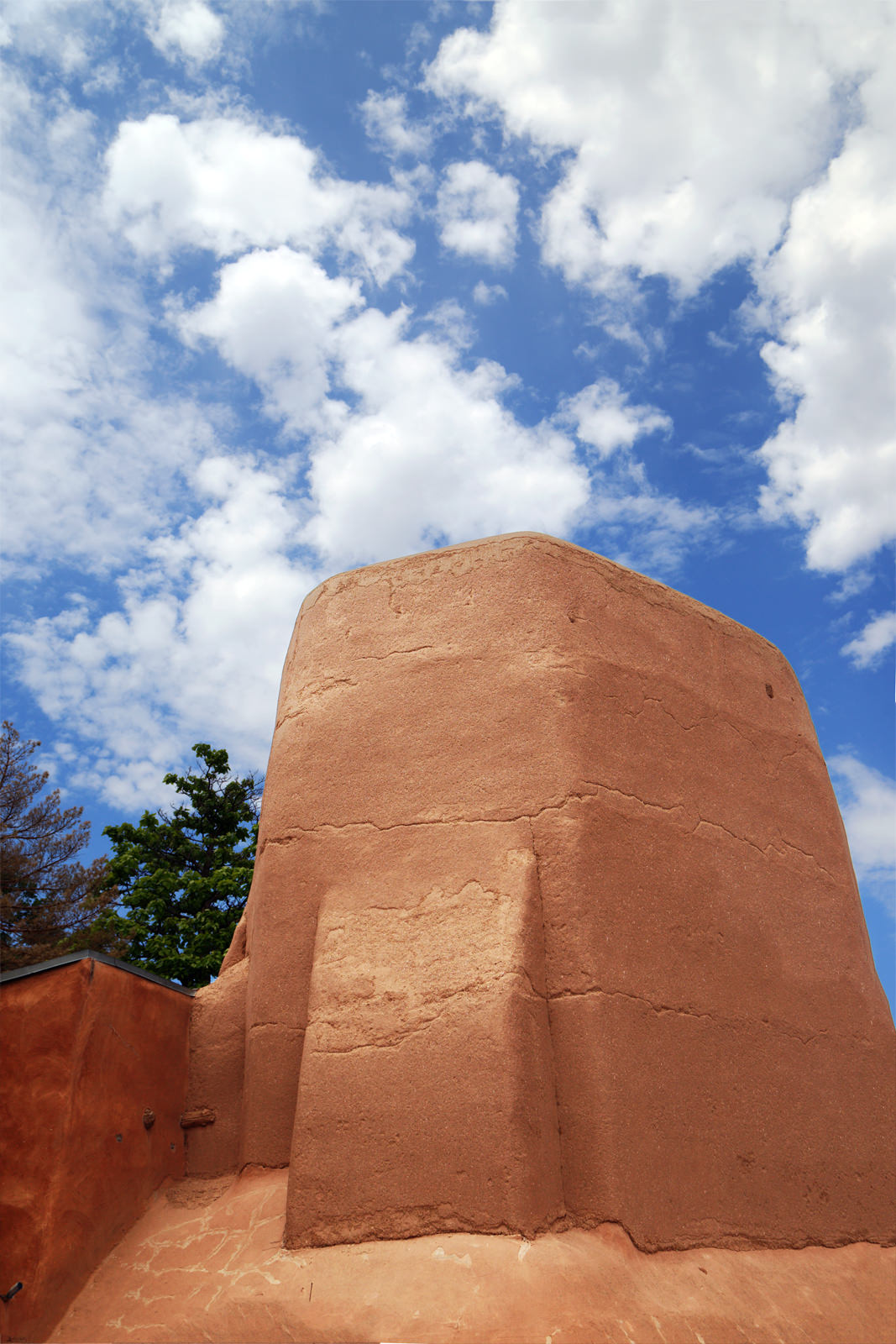
Santa Fe Museum










